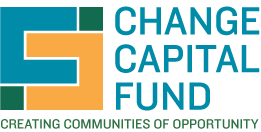|
Creating Sustainable Nonprofits: What Will it Take?
New York Nonprofits in the Aftermath of FEGS, the recently released Human Services Council report, recommends changes to further the sustainability of nonprofits providing direct services to the most vulnerable New Yorkers. The report’s recommendations align with the driving principals behind CCF’s initiative to move persistently poor people up the economic ladder. Chief among these principals are the need for greater input by direct service providers in designing and evaluating programs and the funding needed to support this work. CCF grantees are building out internal evaluation and performance management systems, which is helping them assess and redesign programs to maximize impact. Much of this work, in recognition of the fact that poor people and families have multiple service needs, has led grantees to create better coordination and integration of programs within organizations and with outside partners. While CCF’s one-time grant funding ($1 million provided over four years) is supporting five neighborhood organizations to do this work, private philanthropy cannot fill the void for the entire sector. There is an immediate and acute need for government to move away from traditional, single-purpose contracts that don’t support coordination, nor fund the evaluation, data tracking and reporting necessary to improve programs. CCF is working to convene government funders and our grantees as a first step in facilitating the realization of smarter, more sustainable government program funding that both supports the critical nonprofits working in low-income neighborhoods and more effectively changes the outcomes for low-income residents of high-poverty neighborhoods. It’s the same kind of thinking that, as HSC concludes, should be applied to all nonprofit program contracts. |
|
|
Change Capital Fund Recognized with Corporate, Foundation and Family Philanthropy Award
On March 3, 2016 Change Capital Fund was recognized with the Special Award for Innovation in Fighting Poverty & Building Communities Through Philanthropy by City & State Report. CCF donors Cecelia Tanaka, Vice President, JPMorgan Chase, and Gregory Schiefelbein, Senior Vice President, Citi Community Development, accepted the award on behalf of the funding collaborative. Read more here.
|
|
|
|
Grantee News
Cypress Hills Local Development Corporation (CHLDC): CHLDC’s Middle School Student Success Center (MS SSC) at IS 171 provides students with resources and support in the NYC high school choice process. MS SSC uses an innovative peer counseling model where student youth leaders guide and counsel their peers on applying to high school as they go through the application process themselves.
CHLDC has seen strong acceptance results this year as a result of the program: 56% of students from IS 171 will now attend high schools with graduation rates of 75% or better, up from 14% in 2014, placing students on a better track for high school success. Results also include three acceptances at specialized New York City high schools – almost unheard of at IS 171 just a couple of years ago! CHLDC also has recently advanced their affordable housing initiatives. Construction commenced on two housing developments, Cypress Hills Senior Housing and Pitkin-Berriman Housing, which will provide 114 units of affordable housing in Cypress Hills.
New Settlement Apartments (NSA): NSA is expanding its successful Community Action for
Safe Apartments (CASA) tenant organizing project. Over the past year, CASA has led an enormous effort to engage Bronx residents in the future of their neighborhoods. In response to the Jerome Ave Rezoning, CASA convened a coalition of faith leaders, auto workers, unions, and residents to put together a community plan. From March to October, they held 3 forums, four visioning sessions, collected over 500 surveys, knocked on more than 7,000 doors, and interviewed more than 300 businesses. In total, more than 1,500 community members attended the forums and visioning sessions that helped create the policy platform for Jerome Ave. Since the release of the platform, CASA has held policy briefings, meetings with clergy, Bronx nonprofits, a conference on gentrification and much more! In addition, over the past year, CASA has organized more than 50 tenants associations and knocked on close to 20,000 doors. Recently, CASA hosted a Bronx People’s Hearing on the Mayor’s Housing Plan, where the local City Council member praised CASA’s work, saying that the priorities that were laid out in the policy platform will be her priorities for the rezoning of Jerome Ave. As the scope is set to be released in May, this is incredibly important. 
|
|
|
|
Donor News
Deutsche Bank was featured in a New York Times story about the newly launched Fund for Public Housing, to which the bank was the first grantor. Enterprise released a new study, written about in Forbes Magazine, on the connections between housing and health care. LISC celebrated the success of NYC’s first Financial Opportunity Center with the Fifth Avenue Committee, Brooklyn Workforce Innovations, NYCHA and MetLife Foundation and shared thoughts on equitable economic development in the Rockaways post-Sandy with partners Ocean Bay CDC and Asians Americans for Equality (AAFE). The New York Community Trust supports the new WNYC/The Nation series There Goes the Neighborhood; a recent segment on East New York features CCF grantee Cypress Hills Local Development Corporation’s board chair. New York City Center for Economic Opportunity, along with the Mayor’s Fund to Advance New York City, announced the selection of 14 community organizations (including Red Hook Initiative, which is part of CCF funded Stronger Together initiative) to be part of the $30 million Connections to Care Partnership. |



